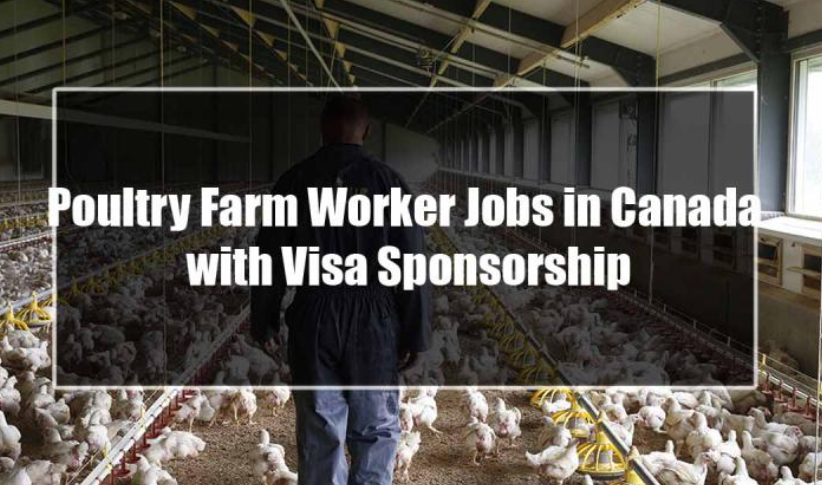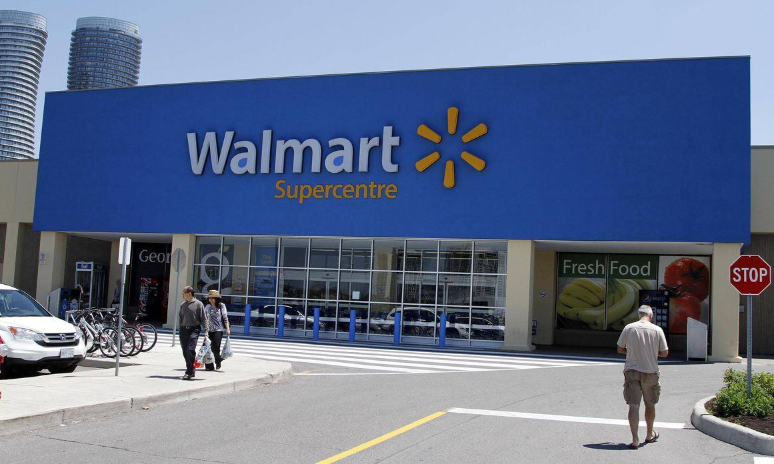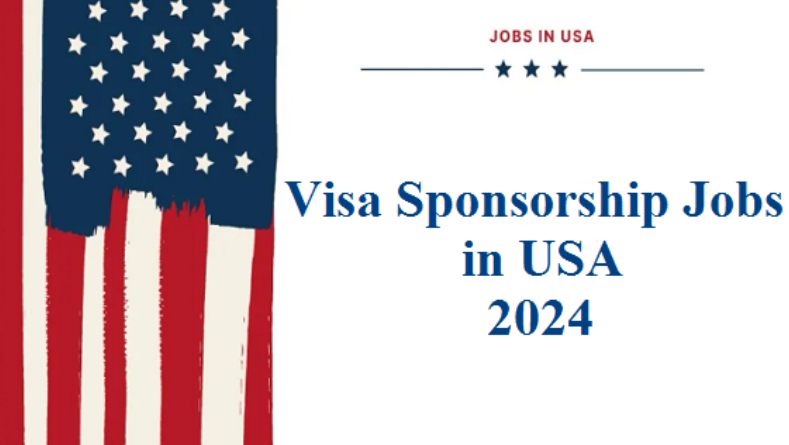The aroma of freshly brewed coffee and the inviting warmth of a bustling Starbucks – these familiar elements might hold the key to a life-changing experience for many. For those with hearts set on living and working in Canada, the iconic green apron could represent more than just a barista job. But can Starbucks Canada actually be your ticket to working in the Great White North?
This guide dives deep into the possibilities of working at Starbucks in Canada with visa sponsorship. While the path might not be as clear-cut as ordering your favorite latte, we’ll explore various options and equip you with strategies to make your Canadian dream a reality.
Working at Starbucks in Canada with Visa Sponsorship
For many, Starbucks represents more than just a caffeine fix. It’s a vibrant atmosphere, friendly baristas, and a global brand with a strong presence in Canada. But what if that iconic green apron could also be your gateway to living and working in Canada? While Starbucks Canada doesn’t explicitly advertise visa sponsorship for baristas, there are still paths you can explore to make your dream a reality.
Eligibility Requirements
Starbucks Canada doesn’t typically offer direct visa sponsorship for entry-level barista positions. This is because the Intra-Company Transfer (ICT) program, which allows companies to transfer specialized employees, is usually reserved for senior or highly skilled roles within the organization.
However, this doesn’t mean your Canadian dream with a green apron is entirely out of reach! Here’s a breakdown of alternative approaches to consider:
Eligibility Through Existing Immigration Programs:
Instead of relying solely on Starbucks sponsorship, explore established Canadian immigration programs:
- Highly Skilled Worker Programs: These programs, like Express Entry, target individuals with skills in high demand across Canada. While barista experience itself might not qualify, transferable skills like customer service, communication, and teamwork could be valuable assets. You’ll need to meet specific criteria like work experience, education, and language proficiency.
- Provincial Nominee Programs (PNPs): Individual Canadian provinces have these programs to attract skilled workers for regional labor needs. Some PNPs might consider barista experience, particularly if combined with additional qualifications or French language skills. Research each province’s specific PNP requirements.
Meeting Employer Requirements for Increased Appeal:
While Starbucks doesn’t sponsor visas for baristas, you can still increase your chances of landing a job that supports your visa application:
- Highlight Transferable Skills: Go beyond coffee! Emphasize your customer service experience, communication skills, ability to work in a fast-paced environment, and teamwork. These skills are valuable across industries and can make you a strong candidate.
- Pursue Additional Qualifications: Consider barista training certifications or relevant customer service courses to enhance your resume and showcase your dedication to the field.
Research and understand the specific requirements of each immigration program you consider. Also consulting a licensed immigration consultant can provide valuable guidance for your specific situation.
By exploring alternative paths and showcasing your transferable skills, you can increase your chances of landing a barista role at Starbucks Canada that could potentially support your independent visa application.
Job Positions to Apply for at Starbucks
While a barista position might be the initial draw to Starbucks Canada, venturing beyond the familiar green apron could unlock valuable opportunities that might even qualify for internal visa sponsorship under the Intra-Company Transfer program (for more senior or specialized roles). Here’s a breakdown of potential job options and their average salary ranges to consider:
Stepping Up from Barista:
- Shift Supervisor: As a shift supervisor, you’ll lead a team of baristas, ensuring smooth operations, maintaining quality standards, and providing customer service excellence. This role requires strong leadership, communication, and problem-solving skills. Average salary: $42,000 – $48,000 CAD per year.
- Assistant Store Manager (ASM): ASMs play a crucial role in supporting store managers, overseeing daily operations, staff scheduling, inventory management, and ensuring adherence to company policies. This role requires strong organizational skills, experience in customer service, and the ability to delegate tasks effectively. Average salary: $50,000 – $55,000 CAD per year.
Venturing Beyond the Cafe:
- Coffee Master: Coffee Masters are brand ambassadors, responsible for brewing exceptional coffee, educating customers about coffee origins and brewing methods, and potentially leading barista training sessions. This role requires a deep understanding of coffee, excellent customer service skills, and the ability to create a welcoming and informative coffee experience. Average salary: $45,000 – $50,000 CAD per year.
- District Manager: District managers oversee multiple Starbucks locations, ensuring they meet performance goals, maintain brand standards, and support store managers. This senior role requires extensive experience in retail operations, leadership skills, and a strategic business mindset. Salary can vary depending on experience but typically falls within the range of $70,000 – $90,000 CAD per year.
Leveraging Existing Skills: (These roles might be less common but could be worth exploring)
- Marketing Specialist: If you have marketing or communications experience, explore opportunities within Starbucks Canada’s marketing department. Your skills could be valuable in promoting the brand and developing targeted marketing campaigns. Salary can vary depending on experience and the specific role, but marketing professionals in Canada typically earn between $50,000 – $75,000 CAD per year.
- Operations Specialist: Your experience in the food service industry, combined with strong organizational and analytical skills, could be valuable in a Starbucks Canada operations specialist role. Responsibilities might include managing inventory, analyzing sales data, and optimizing operational efficiency. Salary can vary depending on experience but typically falls within the range of $48,000 – $58,000 CAD per year.
Important Note: The salary ranges mentioned are estimates and can vary depending on factors like location, experience, and specific job duties. It’s always recommended to research specific job postings on the Starbucks Canada careers page (https://www.starbucks.ca/careers/) for the most accurate salary information.
By exploring opportunities beyond barista roles and showcasing your transferable skills, you can potentially increase your chances of landing a position at Starbucks Canada that could support your visa application, especially for programs that require higher point scores for work experience.
How to Apply
While Starbucks Canada doesn’t directly sponsor visas for baristas, the dream of working in that iconic green apron alongside living and working in Canada is still achievable. Here’s a comprehensive guide to navigate the application process and increase your chances of landing a barista role that could support your independent visa application.
Step 1: Explore Your Visa Options
- Research Established Programs: Dedicate time to researching Canadian immigration programs on the official Immigration, Refugees and Citizenship Canada (IRCC) website. Programs like Express Entry and Provincial Nominee Programs (PNPs) offer pathways to permanent residency based on your skills, education, and work experience.
- Assess Your Eligibility: Carefully evaluate your qualifications against the specific criteria of each program. Tools like the Express Entry points calculator on the IRCC website can help you gauge your potential competitiveness.
- Consider Provincial Variations: Provincial Nominee Programs (PNPs) can be particularly relevant. Research which provinces might value your barista experience, especially if you have additional skills or French language proficiency. Each province has its own PNP with specific requirements and application processes – explore websites of provinces that interest you.
Step 2: Strengthen Your Candidacy for Starbucks Canada
- Highlight Transferable Skills: Barista experience translates into valuable assets beyond coffee knowledge. Emphasize your customer service skills, communication abilities, teamwork, and ability to thrive in a fast-paced environment.
- Boost Your Resume: Consider pursuing barista training certifications or relevant customer service courses to demonstrate your dedication and enhance your resume. Look for internationally recognized certifications that could add weight to your application.
- Target Your Job Search: Research Starbucks locations in provinces with PNPs that might be more receptive to barista experience. This could increase your chances of landing a job that supports your visa application.
Step 3: The Starbucks Application Process
- Research Starbucks Canada Careers: Visit the Starbucks Canada careers page to familiarize yourself with their application process and current job openings.
- Craft a Compelling Application: Tailor your resume and cover letter to highlight your most relevant skills and experiences for the specific position you’re applying for. Showcase your enthusiasm for the brand and your transferable skills that align with Starbucks Canada’s values.
- Ace the Interview: Prepare for potential interview questions by researching common interview topics for barista positions. Be ready to demonstrate your passion for customer service, teamwork abilities, and commitment to quality.
Step 4: Securing Your Visa Independently
- Seek Professional Guidance: Consulting with a licensed immigration consultant can be invaluable. They can help you navigate the complexities of Canadian immigration programs and identify the most suitable option for your situation.
- Gather Required Documentation: Each program has specific documentation requirements. Start collecting documents like educational certificates, proof of work experience, language test results (if applicable), and financial records well in advance.
- Submit Your Visa Application: Once you have a job offer that supports your visa application and have met the specific program requirements, you can proceed with submitting your visa application through the IRCC website.
The application process can take time. Patience and persistence are key. Staying updated on the latest requirements and deadlines through the IRCC website is crucial.
While a direct Starbucks Canada visa sponsorship might not be on the immediate horizon for baristas, a strategic approach combined with dedication can still make your Canadian dream a reality.
Frequently Asked Questions (FAQs)
Here are some of the major questions people ask about Working at Starbucks in Canada with Visa Sponsorship:
Q: How can I make my application for Starbucks Canada more appealing?
A: Highlight your transferable skills! Emphasize customer service, communication, teamwork, and working in a fast-paced environment. Consider pursuing barista certifications or relevant customer service courses to strengthen your resume.
Q: I have experience in another coffee shop chain. Can that experience be considered for a barista position at Starbucks Canada?
A: Absolutely! Your prior experience in the coffee industry is valuable. Highlight transferable skills like beverage preparation, cash handling, interacting with customers, and maintaining a clean and efficient work environment. Focus on how your experience translates to the specific requirements outlined in the Starbucks Canada job posting.
Q: I don’t speak French, but I’m interested in working at Starbucks Canada. Does this limit my options?
A: While proficiency in French can be an asset, it’s not necessarily a deal-breaker for all provinces. However, some Provincial Nominee Programs (PNPs) might award additional points to candidates with French language skills. Focus on highlighting your transferable skills and consider exploring PNPs in provinces where French isn’t a mandatory requirement.
Q: I secured a job offer at Starbucks Canada. Does this guarantee my visa application will be approved?
A: A job offer from a reputable employer like Starbucks Canada is a significant step forward, but it doesn’t guarantee visa approval. The Immigration, Refugees and Citizenship Canada (IRCC) will assess your application based on a comprehensive point system that considers factors like your education, work experience, language skills, and age.
Q: Are there any additional costs associated with using a licensed immigration consultant?
A: Yes, licensed immigration consultants typically charge fees for their services. These fees can vary depending on the complexity of your case and the level of support you require. Consider it an investment in maximizing your chances of a successful visa application.
Q: Can I work part-time at Starbucks Canada while on a visa?
A: The possibility of working part-time depends on the specific visa you obtain. Some visas, like student visas, might allow part-time work opportunities, while others might have restrictions on work hours. Research the specific requirements of the visa program you’re considering on the IRCC website.
Q: I have a criminal record. Does this disqualify me from working at Starbucks Canada or applying for a visa?
A: Not necessarily, but it can complicate the process. Certain criminal convictions might make you inadmissible to Canada. Consult with a licensed immigration consultant to understand how your specific situation might affect your eligibility.
Q: What happens after my visa expires?
A: The validity period of your visa depends on the specific program. Some temporary visas require you to leave Canada and re-apply if you wish to stay longer. Other programs, like some PNPs, offer a pathway to permanent residency after meeting specific criteria. Ensure you understand the renewal or pathway to permanent residency options associated with your chosen visa program.
See More and Apply Here
Conclusion
While working at Starbucks Canada with direct visa sponsorship might not be a straightforward path, it’s not impossible. By strategically highlighting your skills, exploring alternative programs, and seeking professional guidance, you can increase your chances of brewing up your Canadian dream.





